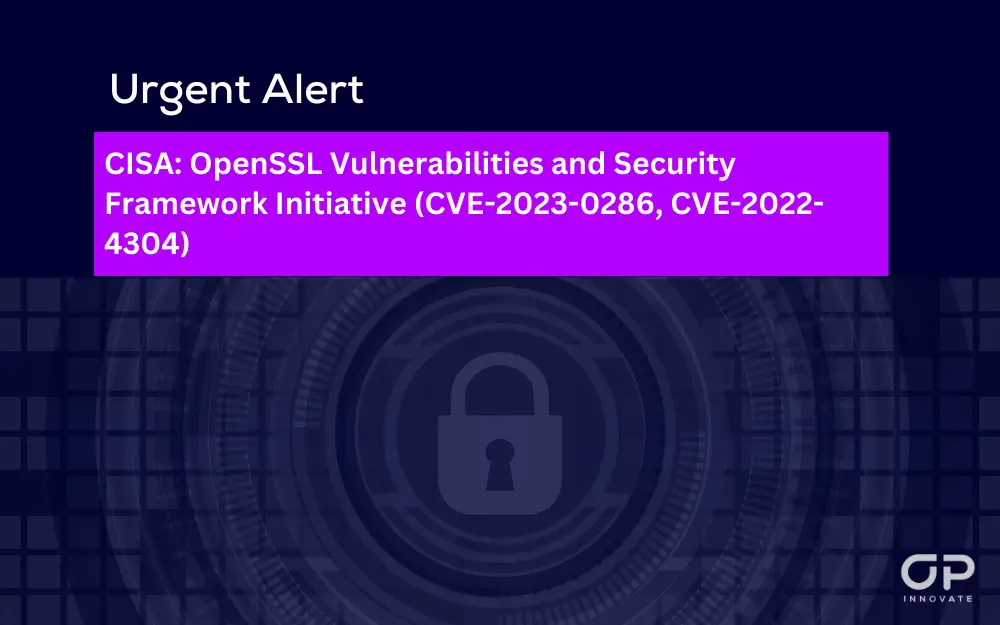OpenSSL issued an advisory to address multiple vulnerabilities across versions 3.0.0, 2.2.2, and 1.0.2. These vulnerabilities, if exploited, could allow attackers to obtain sensitive information, leading to potential data breaches and system compromises.
Key Vulnerabilities:
- CVE-2023-0286: High severity issue related to X.400 address type confusion, potentially allowing unauthorized memory access or denial of service.
- CVE-2022-4304: Moderate severity timing oracle in RSA decryption, potentially enabling plaintext recovery across a network.
- Additional vulnerabilities of moderate severity include buffer overflows, use-after-free issues, double free issues, invalid pointer dereferences, and more, affecting various aspects of OpenSSL’s functionality.
Recommendations:
- Upgrade to OpenSSL 3.0.8, 1.1.1t, or 1.0.2zg (for premium support customers) to mitigate these vulnerabilities.
- Review and apply the guidance from OpenSSL’s security advisory.
CISA and OpenSSF Initiative on Package Repository Security
CISA and the Open Source Security Foundation (OpenSSF) Securing Software Repositories Working Group have released a framework titled “Principles for Package Repository Security.” This initiative aims to enhance the security of package repositories, crucial components in the open-source ecosystem, against cyber attacks.
Framework Highlights:
- Establishes four security maturity levels across categories including authentication, authorization, general capabilities, and CLI tooling.
- Recommends that all package management ecosystems aim for at least Level 1 maturity, incorporating multi-factor authentication and vulnerability reporting mechanisms.
Objective:
The framework encourages package repositories to self-assess their security maturity and develop plans for incremental security enhancements, thereby strengthening the overall security of the open-source software supply chain.
Implications:
- Enhancing package repository security is critical in preventing software supply chain attacks, which can compromise vast networks of dependent systems and applications.
- The initiative underscores the importance of collaboration between government agencies, non-profit organizations, and the private sector in securing critical open-source infrastructure.
Action Items:
- OpenSSL users should promptly review the advisory and update affected systems.
- Organizations involved in the development or deployment of open-source software should evaluate and adapt the Principles for Package Repository Security to enhance their security posture.
Conclusion
These developments highlight the ongoing efforts to secure open-source software components and the ecosystems they support. By addressing vulnerabilities in widely used libraries like OpenSSL and establishing frameworks for repository security, the cybersecurity community can better protect against evolving threats. Organizations are urged to review these advisories and frameworks and take necessary actions to bolster their cybersecurity defenses.
Stay safe and informed,
OP Innovate.









